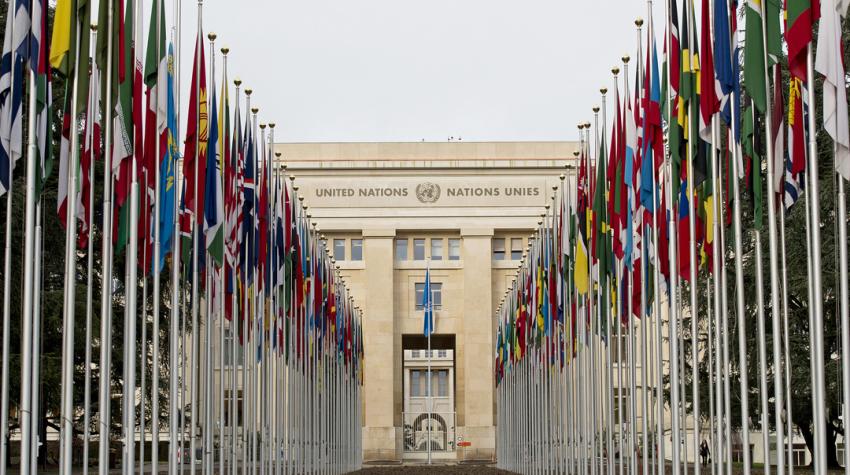Jan 2, 2024
In his 1893 work, The Division of Labor in Society, French Sociologist Emile Durkheim evaluates the social costs of Adam Smith’s division of labor, or how the separation of work according to specialized individual skills affects human relations. If every activity, if every discipline, be it economic, political, social, administrative, academic, or otherwise is broken down into smaller and smaller specialized roles, what then are the social consequences? Can “over-sorting” social affiliations degrade the cohesive ethics of communal responsibility? When do hyper-individualism and hyper-sovereignty degrade the connective responsibilities nations have to advance common endeavors in human affairs?
Durkheim reminds us that much like dividing labor into specialized, independent roles, society too can fall victim to over-sorting into cliques. The consequences of which he calls anomie. Different than anarchy, anomie is a condition of normlessness—a breakdown of social bonds; a paranoic condition that our counterpart’s beliefs are somehow inimical as we retreat from agreed-upon values, morals, norms, and standards that bind us together. For example, if the ideals of nations and groups mirror the dissimilar manufacturing principles of car companies, then the ideas that adhere societies and nations together will erode, even if everyone is still making cars. But we, at our best, work in common cause to overcome differences. Hereto, Durkheim does not just diagnose how anomie and moral relativism become prevalent in politics. He gives us an antidote to arrest this breakdown in human relations. It starts with aspirations.
To cure the international system of anomie—this breakdown of normlessness—nations must first aspire and then agree that they are responsible for fundamental norms in foreign affairs; that nations do in fact have responsibilities to act upon agreed standards of conduct that ensure stability in international relations. Where can nations begin stitching together the connective tissue of responsible conduct? By reasserting first principles.
Take the Geneva Convention. All 196 members of the United Nations have agreed to the four 1949 conventions that States observe certain restrictions on the conduct of war: (1) the Convention for the Amelioration of the Condition of the Wounded and Sick in Armed Forces in the Field, (2) the Convention for the Amelioration of the Condition of the Wounded, Sick, and Shipwrecked Members of Armed Forces at Sea, (3) the Convention Relative to the Treatment of Prisoners of War, and (4) the Convention Relative to the Protection of Civilian Persons in Time of War.
Nations also have the Responsibility to Protect (R2P) their “…population from genocide, war crimes, ethnic cleansing and crimes against humanity.” Furthermore, the use of force in international affairs is limited to self-defense and nations observe the morality of non-intervention in intrastate conflict. Indeed, nations have a responsibility to assist other states from external assault on a nation’s homeland. However, another country’s domestic disputes belong to the domain of that actor and that actor alone—unless again protecting populations from genocide, war crimes, ethnic cleansing, and crimes against humanity are clear and present.
It’s easy to be distracted by anomie. It’s hard to find consistency when everything you have come to understand about the world seems turned inside-out. But now more than ever is the time to hold steady to first principles and remain consistent in our application of values. “War is an ugly thing…,” John Stuart Mills says, “…but not the ugliest of things: the decayed and degraded state of moral and patriotic feeling which thinks that nothing is worth a war, is much worse. When a people are used as mere human instruments for firing cannon or thrusting bayonets, in the service and for the selfish purposes of a master, such war degrades a people. A war to protect other human beings against tyrannical injustice; a war to give victory to their own ideas of right and good, and which is their own war, carried on for an honest purpose by their free choice — is often the means of their regeneration…”. We mustn’t fear these times. We must make these times fear that they ever sought to violate the dignity, freedom, and virtues of an enlightening belief in liberty, equal protection under the law, and justice for all.
Joshua Stone is a Political Science Ph.D. student majoring in International Relations with the Schar School of Policy and Government. He is a U.S.-China relations specialist, a father of two, a combat veteran of the United States Army, and an aspiring professor. His research takes aim at material and psychological regulators of the security dilemma and spiral model. Specifically, he examines the effects of state interdependence and ideology on the severity of security dilemmas between rival states and their impact during offensive conditions in spiraling relations. He holds a B.A. in Political Science and History in U.S.-China Relations from the University of California, Berkeley and an M.P.P. in Chinese Political and Economic Affairs from the University of California, Irvine.
Photo can be found here.




